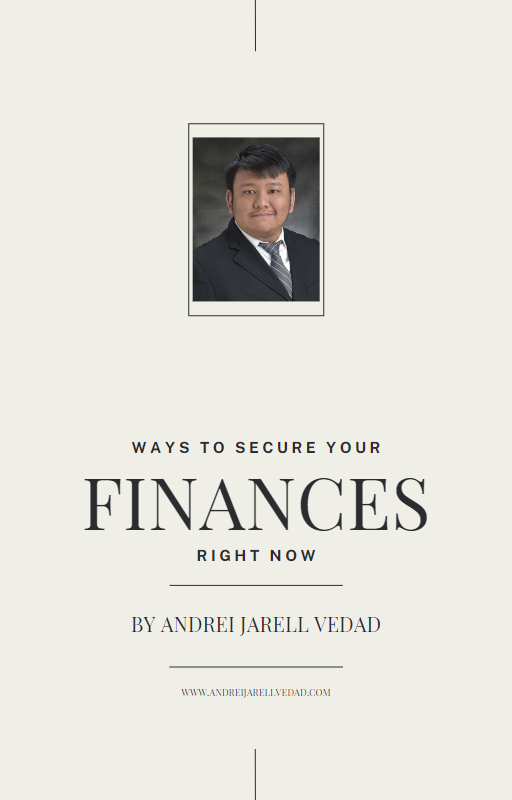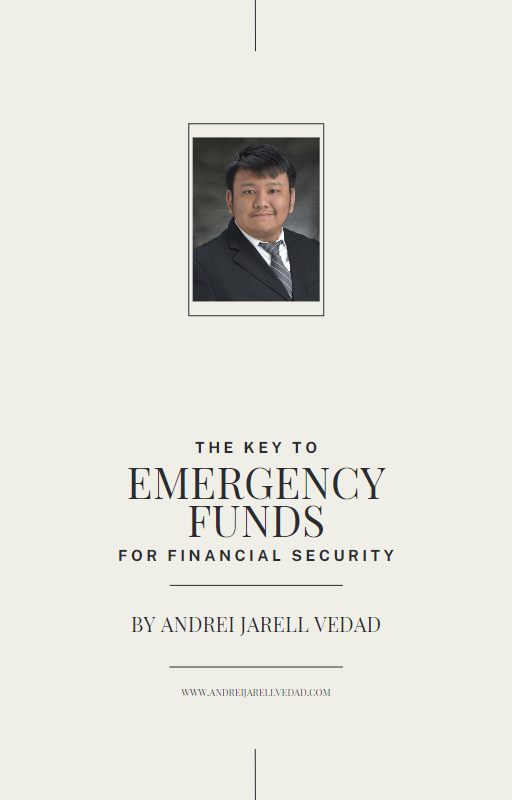
Table of Contents
Budgeting 101: How to Create a Personal Budget that Works for You
Creating a personal budget is one of the most important steps on your journey to financial success. Here’s a step-by-step guide to help you get started.
What Is A Budget?
A budget is an estimation of income and expenses over a specific future period of time, and is usually compiled and re-evaluate on a periodic basis. It can help you feel more in control of your finances and make it easier to save money for your personal goals.
How To Make A Budget?
Here’s a step-by-step guide to help you get started:
Determine Your Income
Begin by calculating your monthly income, including your salary, side hustles, and any other sources of income.
Track Your Expenses
Track all your expenses for a month to get an idea of where your money is going. Here’s a tip to make this easier: use a spreadsheet, app, or notebook to record your expenses.
Categorize Your Expenses
Divide your expenses into categories such as housing, transportation, food, entertainment, and savings. This will help you see where you can make adjustments to your spending.
Set Goals
Decide on your financial goals, whether it’s paying off debt, saving for a down payment on a house, or building an emergency fund.
Create Your Budget
Use your income and expenses to create a budget that fits your goals. Allocate a certain amount of money to each category, making sure to include savings.
Review and Adjust
Review your budget regularly to ensure you’re on track to reach your goals. Adjust your budget as needed to accommodate any changes in your income or expenses.
Bonus Step
Use the 50–30–20 rule
With this rule, you can save money and budget your money smartly. After taxes, your income should be divided into: 50% on essential needs; 30% on wants; and 20% on paying off your debt or setting aside funds in case of an emergency.
Remember, creating a personal budget requires discipline and commitment. Stick to your budget as much as possible, but don’t be too hard on yourself if you slip up. The important thing is to keep working towards your financial goals.
Conclusion
Creating a personal budget is an essential step towards achieving financial success. By tracking your income and expenses, categorizing your spending, setting goals, creating a budget, and reviewing and adjusting regularly, you can gain control of your finances and achieve your financial goals. Remember to stay disciplined and committed to your budget, and don’t be too hard on yourself if you slip up. With persistence and dedication, you can achieve financial freedom and security.
Relevant Blog Posts
Here are some relevant blog posts that you can read after this one:
- The Key To Emergency Funds For Financial Security
- Ways To Secure Your Finances Right Now
- Building An Emergency Fund On A Low Income
- How To Stay Motivated To Achieve Your Financial Goals
- Budgeting For College Students in the Philippines
- How To Save Money On A Tight Budget
- 10 Lucrative Side Hustles You Can Start from Home Today
- 10 Profitable Small Business Ideas for Filipinos in 2023
- Passive Income Ideas For Filipinos
- Frugal Living Tips For Filipinos
- Smart Habits That Helps You Save Money
- Get Debt-Free: Expert Tips and Tricks to Pay Off Your Debts
- Money Management Made Easy: Why You Need Separate Budget Accounts
- Budgeting 101: How to Create a Personal Budget that Works for You
I hope these blog posts are useful and informative to you.
For Your Reference
Budgeting
For your reference, you can read these blog articles relevant to budgeting:
- What Is Financial Literacy?
- Budgeting When You’re Broke
- The Beauty of Budgeting
- 5 Rules to Improve Your Financial Health
- Calculate Your Debt-to-Income Ratio
- 8 Financial Tips for Young Adults
- 5 Signs That You’re Living Beyond Your Means
- 4 Easy Budgeting Techniques
- 3 Common Budgeting Challenges to Overcome
- Zero-Based Budgeting: Benefits and Drawbacks
- Best Budgeting Apps
- What Is a Budget? Plus 10 Budgeting Myths Holding You Back
- Basic Budgeting Tips Everyone Should Know
- Budgeting Basics To Help You Manage Your Money
- Understanding Budgeting & Personal Finance
- 5 Simple Budgeting Guidelines to Follow
- The 50/30/20 Rule of Thumb for Budgeting
- Strategies for Budgeting and Saving Money
- Different Budgeting Techniques to Try
- Understanding Budgeting & Personal Finance
- Budgeting for Kids: How To Teach It and Why It Matters
- Budgeting for Teens: What You Need to Know
- 10 Budgeting Pitfalls and How to Avoid Them
Debt
For your reference, you can read these blog articles relevant to debt:
- What Is Debt?
- Student Loan Debt vs. Credit Card Debt
- Good Debt vs. Bad Debt: What’s the Difference?
- A Step-by-Step Guide To Getting Out of Debt
- Choose the Debt Payoff Strategy That’s Right for You
- A Guide to Debt Settlement
- 12 Tips for Sticking to Your Debt Payoff Plan
- 6 Steps to Get Out of Debt
- How to Pay Off Credit Card Debt
- What Is the Debt Avalanche Strategy?
- What Is Debt Consolidation?
- What Is a Debt Repayment Plan?
- How to Create a Debt Elimination Plan
- Debt Avalanche vs. Debt Snowball: What’s the Difference?
- Debt Settlement: Cheapest Way to Get Out of Debt?
Emergency Funds
- Why an Emergency Fund Is More Important Than Ever
- How to Build an Emergency Fund
- The best protection against bad trouble is good planning
- How Much Cash Should I Keep in the Bank?
- Emergency Funds
- 8 Reasons You Need an Emergency Fund
- What Amount Do Retirees Need in an Emergency Fund?
- How To Use Your Emergency Fund and Make It Last
- Rule of Thumb: How Big Should Your Emergency Fund Be?
- When to Use Your Emergency Fund
- Rainy Day Fund vs. Emergency Fund – Do You Need Both?
- It’s Time to Build a Better Emergency Fund
- How to Prepare Your Emergency Fund
- Emergency Cash Reserves
- 7 Tips for Building an Emergency Fund
Disclaimer
I am not a financial advisor. Please note that the information provided on this website is for general informational purposes only and should not be considered as financial advice.
While I strive to ensure the accuracy and timeliness of the information presented, financial situations can vary, and the content may not be applicable to everyone. Therefore, it is essential to consult with a qualified financial professional or advisor before making any financial decisions.
It is important to understand that investing and financial planning involve risks, and there are no guarantees of specific outcomes or returns.
By accessing this website or engaging in consultations, you acknowledge and agree that any actions taken based on the information provided are at your own risk, and I shall not be held liable for any direct or indirect consequences arising from such actions.
Get My E-books For Free!


Take control of your financial future and download my e-books: “Ways to Secure Your Finances Right Now” and “The Key To Emergency Funds For Financial Security” today! This comprehensive guides are packed with practical strategies and expert advice to help you achieve financial security and improve your financial literacy.
By subscribing to my Substack Newsletter, you’ll gain access to exclusive content, regular updates, and valuable insights on personal finance. You’ll stay informed about the latest financial trends, investment opportunities, and money-saving tips.
Don’t miss out on this opportunity to equip yourself with the knowledge and tools needed to secure your financial future. Join our community of motivated individuals who are committed to achieving financial freedom and success.
Subscribe to my Substack Newsletter today and get instant access to the e-book “Ways to Secure Your Finances Right Now.” Take the first step towards a brighter financial future. Your journey to financial security starts now!
Affiliate Links Disclaimer
My blog posts contain referral/affiliate links, so I can potentially earn via commission. It would help me a lot when you use my referral/affiliate links

Andrei Jarell Vedad is a passionate financial literacy advocate from the Philippines. With a background in Information Technology and currently pursuing a law degree, Andrei combines his knowledge and expertise to empower individuals in managing their personal finances. Through his blog and extensive research, he shares practical tips, strategies, and thought-provoking articles to help readers make informed financial decisions and achieve their financial goals. With a global perspective, Andrei aims to inspire positive change and foster financial well-being, not only in the Philippines but also worldwide.


